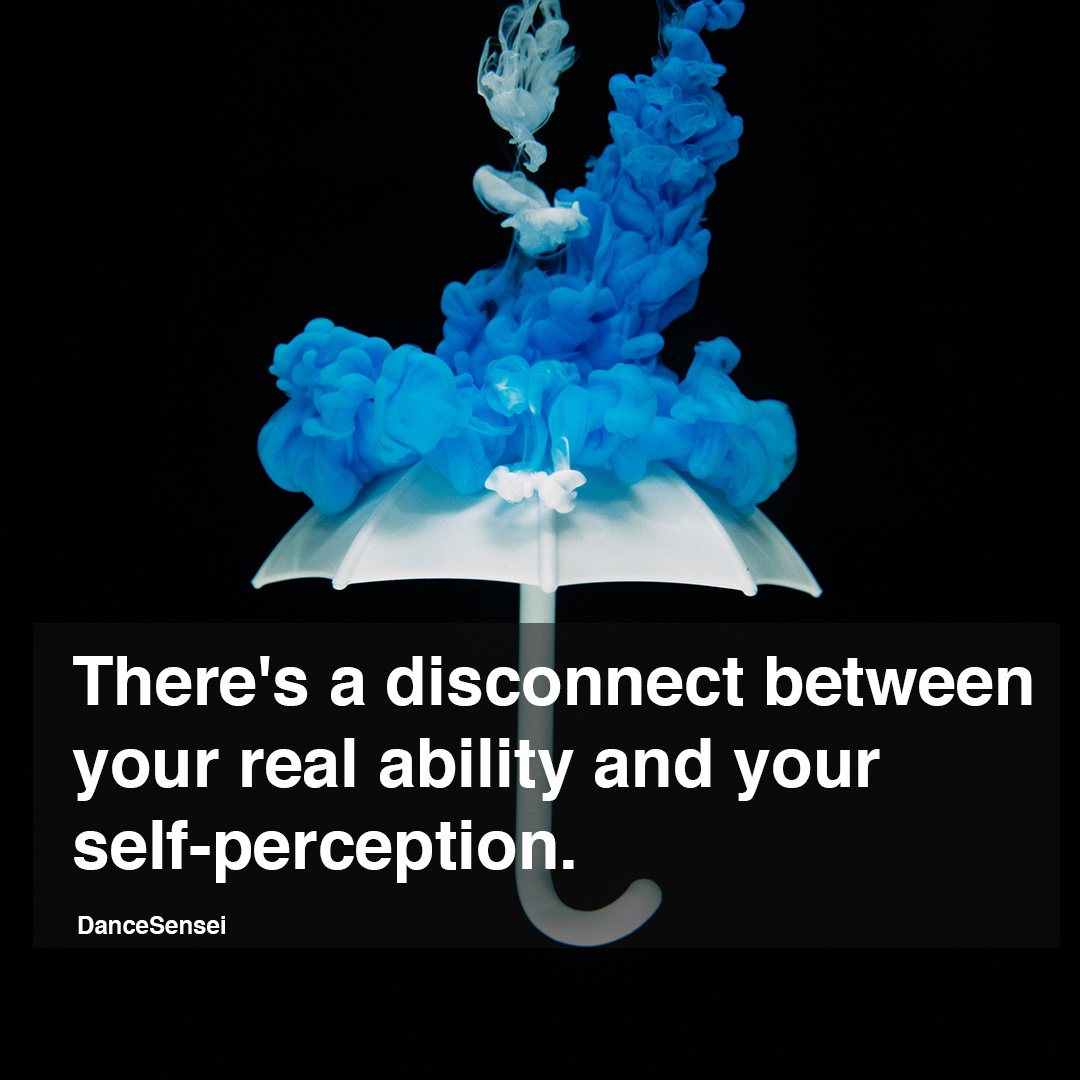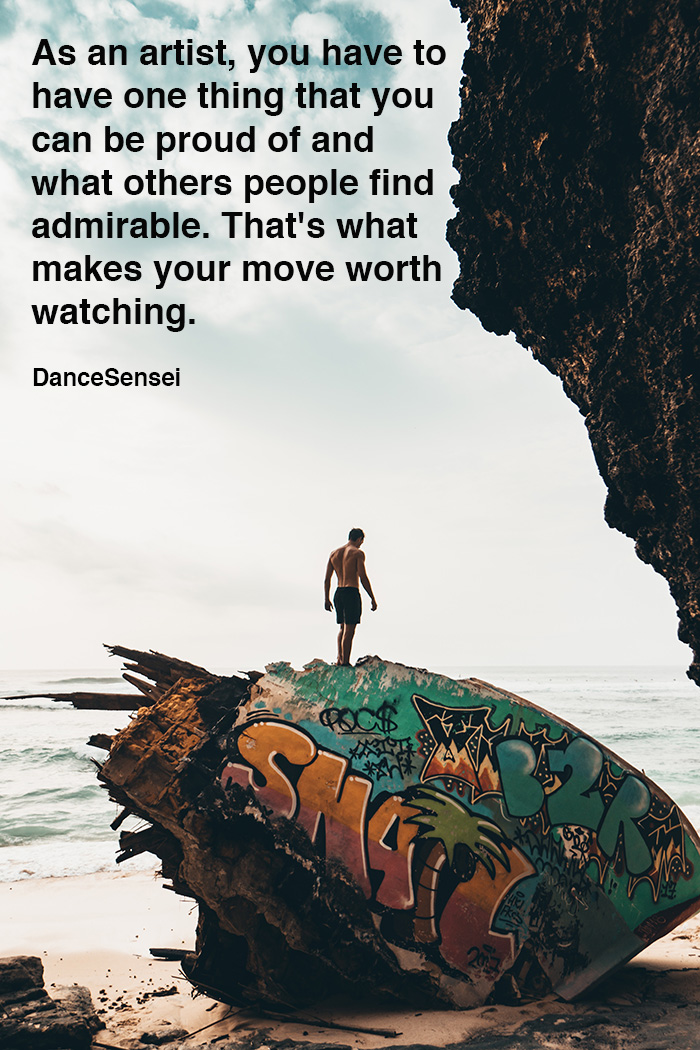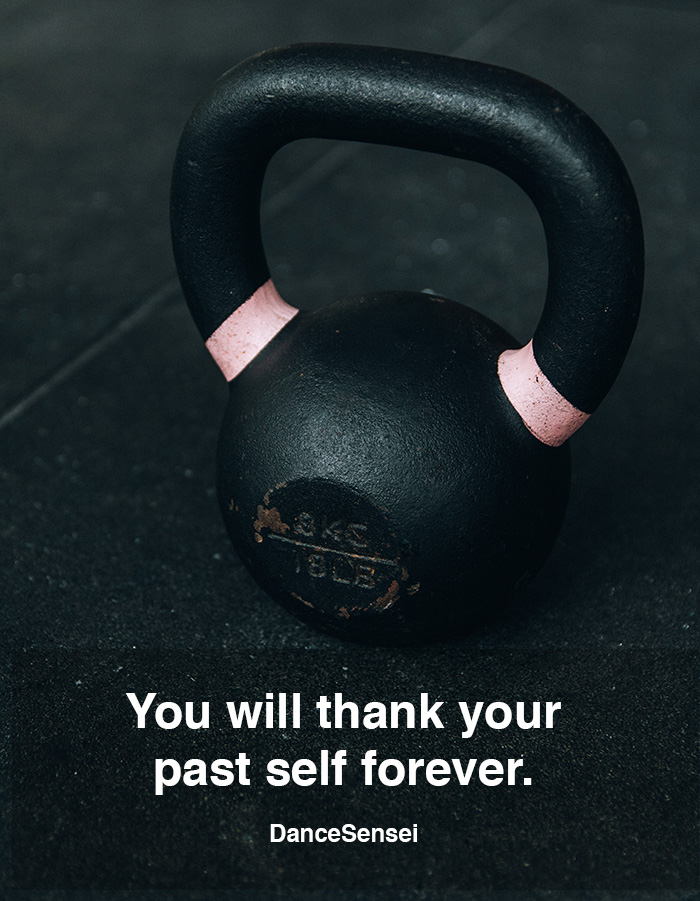Let's start with a simple question...
How confident are you in performing your dancing in front of other people?
No matter how much experience you have, the feeling of popup showcase can be daunting. It's true even if the people assure they won't laugh at you.
What is this nagging anxiety? Showcasing is simply a public practice of what you have been doing for the past months. Yet, the emotional weight is real.
Today, I’m going to walk you through the psychological method of how to realize your symptom and to counterattack this monster. Let's dive in...
You are not alone
First of all, what are we dealing with here?
Here's a little bit of the background information.
In 2011, The Journal of Behavioral Science reported 70% of Americans have experienced some kinds of imposter syndrome in their lives. That number amounts to 10-15 people in a typical dance class. I set up a checklist you can take later down below to check if you fall under one of them. But the number is overwhelming. Feel free to assume you fall under this spell as well for the time being.
So what is this common syndrome we all face?
Imposter Syndrome Defined
If you want to slay the dragon, you have to understand his nature first.
The term imposter syndrome was defined by Dr Clance and Imes in 1978. It was used to describe someone who cannot internalize their accomplishments and have a persistent fear of being exposed as a fraud.
In other words, there's a disconnect between your real ability and your self-perception.

Why Should Dancers Care?
Ok, this sounds all good and educational, but why should I care? You might ask.
The fact is it can impact you in every way, starting from the practice to the performance. It is particularly true if you are thriving to be one of the top dancers.
Here are some of the examples imposter syndrome can haunt you real bad.
Make Stage Performance Monotone
You fear your audience. Here's how it goes.
What happens if they find out how fake I am.. 100s of eyes are on you, judging. Every second, they are looking for the fraud in you. What am I doing here.. I am not even good to start with. I want to get off the stage as soon as possible...
There will be a never-ending spiral of negative talk.
If you are an audience, how can you enjoy such scared chicken performance?
In fact, that trembling fear shows up in your face and every move you do. Your arm looks smaller. Your turn makes a circle extra second faster. There is no energy in you.
Pickup Dance Technique Faster
Getting a feedback is a key to get better.
When is the last time you ask someone to critique your movement?
It sounds counterintuitive for the imposter to have difficulty asking. But this is all because of the fear. They always aim for the perfection, and getting any type of negative feedback form someone else crushes their ego, personality, and everything.
Instead, some of the great feedback seekers know they have strength as well as weakness. They can approach the problems more rationally. They know any feedback is helpful to move forward.
You want to be asking for feedback as many times as possible. If you have an opportunity to perform, do it! And then, ask your friends how you have done. The more you get them, the faster get better. That is what differentiates fast learners over guys who never get anywhere.
Advance Unique Strength
Have you thought about what kind of motivation you have when dance practicing?
Imagine these 2 subtle but different ways of thinkings:
1. "I suck at this move. I should practice this so other guys don't make fun of me"
2. "I like this move. I want to practice to be the best so I can surprise my friends"
The first thought is based on the imposter fear, and you are trying to catch up with someone else. Overcoming your weakness is good, but a practice based on external motivation is bad. You have to internalize it first.
Dancing is art. As an artist, you have to have one thing that you can be proud of and what others people find admirable. That's what makes your move worth watching.

Stack Up as Lifeskill
Have you had a presentation you just wanted to run away so badly? Your hands full of sweat, mouth dry like a Sahara desert.
On the other hand, there is this guy who is witty, sharp and natural. How can he stay so authentic in front of so many people?
You guessed it. That's the imposter's doing. Causing you a rushed anxiety in public.
At any type of job, you have to deal with humans beings. It might be your boss, customers, coworkers, etc. You are already spending so much time on your burning passion called dancing. Why not take advantage of time?
Once you master the ability to overcome this, you will have an easier life whether it'd with your boss, friends, family, etc. You will thank your past self forever.

NOT FUN!!
It comes down to this at the end of the day.
You approach dancing in a regular routine. Start from the warmup, stretch, basics, choreography run-throughs...
But let me ask this. When is the last time you danced with your buddies for fun?
Dancing is not just a random set of tricks. Dancing is a social activity.
You look at people's eyes and try to communicate your feelings with the music to someone else. You can think of the passionate salsa dancers for a moment. There's indescribable magic in the atmosphere only those in the eye contacts can tell. It is like a live concert - the heat between the rock stars and audience.
Imposter syndrome disturbs you at every step of the way from having this magical experience. Nobody is asking for a perfection. They are asking for your emotions.
Do you have it?
To check if you have imposter syndrome, I have made a simple checklist. It has been inspired and modified from PsychTests so that it fits specifically to dancers.
- I'm keeping a dance practice secret from my friends and family.
- It's hard for me to accept compliments or praise. People are just being polite.
- In the dance class, I always compare myself with others and think how much they are better than me.
- When I watch myself in the video, I feel disappointed in my ability.
- YouTube dancers are complementary out of my league.
If you have answered yes to more than 3, you have imposter syndrome with a high chance.
What can you do?
Now you know what the problem is, it is time to fight back!
Here's a list of steps you can take to combat. Prepare to draw your swords!
Ignore YouTube
As you saw in the last question of the checklist,
YouTube is a fabulous place for learning. Those world-class dancers show you the door to what is possible. They are pushing the frontier whether you are doing hiphop, locking, popping, or breaking. You will pick up many techniques. Copy the move if necessary. And it can be a great source of your inspiration.
Yet, be careful. Those guys will crush you. The ideal figure you project yourself onto. Often, they have been dancing for 5, 10, 15, 20 years. Some of them even may be professional and practice 24/7. If you are starting out, you should never compare yourself with them. It's like the Instagram illusion. You are only seeing the fragments of their lives.
Instead, when it comes to measuring your progress, focus on the feedback from the real people around you. They can be your studio mates or even good old friends. Focus on impressing them. Treat YouTube as a textbook - dry and informative.
Film Regularly
How often do you film yourself dancing?
One of the best popper, Kite, once said in an interview who he has learned from. His answer was "no one. My only teacher was a myself". It is true. He uploaded 100s of videos when he was still unknown.
Checking out your half-baked can be a daunting task. You have to watch through this crappy dancer. But that's the best medicine you've got.
After rewatching, you will pick up here and there the move you like. You will go "Oh, this part isn't so bad. It's actually kinda cool". That's when you know what to be proud of. It might be only 2 seconds of 1 minute shooting. But, that's the first step. Remember, your job here is to rationally assess your good from the bad.
Record Your Progress
I recently found a new favourite quote from Jordan Peterson. It's such a wise advice for anyone who is trying to thrive for the better that I want to share it.
In his book 12 Rules of Life, he says:
"Compare yourself to who you were yesterday, not to who someone else is today".
It is such a brilliant quote. It catches you every time you start feeling insecure about yourself. After all, our world is filled with people who are more successful than us. Of course, this wisdom works with your imposter syndrome.
Now that you have started filming regularly, your next job is to take a note of your move. And the next is the key. You need to revisit your note regularly. Techniques you are trying to master? Drop it down. Make your turn extra faster? Write it.
Not many people go this far. But, this is the only way to understand your progress. It actually feels like you are getting better and better. Don't worry. This will soon become habitual.
Relax. Dancing is Hard!
Are you kidding? You are dancing for the GOD's SAKE!
The task you are carrying is not meant to be easy. Moving hands and legs at a lighting speed is one thing. Some people might be able to do that with a sheer athletic skill. But put that on top of music rhythm, and no one can.
This is the reason dancers are respected characteristic anywhere you go. Even in Native American society, their social gathering revolves around dancing, called Powwow. Young boys look up those in the heated circle, thinking they would one day move like the head dancer.
Only towards the end of the journey, you will gain the respect everyone admires. For now, keep your heads up and be patient.
Make a Tiny but Firm Step
Say, you are the hasty type who would load yourself all the challenges from the day 1. I hear you. It's exciting to overcome your weakness and accomplish something astonishing.
But before going to apply for the next America's Got Talents, you should take a step-by-step approach.
Have you performed it in front of your friends? If the answer is no, that's a good place to start. As you do it, keep in check of your mind set. Are you feeling excessively nervous? Worry not. There's no shortage of drink time entertainment for the wasted folks. You can count me on that.
Only after, you can go to a public performance. School talent show, disco crowd, local festival, dancer's event, etc. Of those, a dancer's event puts the highest pressure on you because they tend to be also judgemental: the expectation is high.
Only then, feel free to go onto your dream national championship;)
Consult with a Mirror
It sounds strange. I know. You are self-talking.
The concept is actually well established in psychology. It's part of a umbrella term called affirmation.
This is something I do everywhere. The method is simple. Every time you have something big coming up like a performance, go to the bathroom, and stare at yourself in the mirror. You don't have to speak up actually. Just with your internal voice, tell yourself. "You are worth it!" "You can do it!!". The point is to get rid of your clouded anxious thoughts, and help put back the focus on what's right in front - you.
Remember, that imposter syndrome is all from your negative self-judgement.
Believe in Yourself
Why did I want to write on this topic in length?
That's because I was once an imposter myself too. Only after years of mental practice and meditative talking, I gained the self confidence and started to see myself as is. Neutral and no facade.
Now this is your time.
The fact that you are reading this blog post means you are better than the average folks. Most will never make any initiative. That fact alone is enough to pat yourself on the shoulder. Any skill attainment is painful. It may destroy your souls sometimes. It is time like that, you need to be in touch with your deep confidence. Keep reminding yourself how much you have come so far in the journey.
Late night practice, being a lonesome wolf.
You will be an unstoppable dancer in no time.
